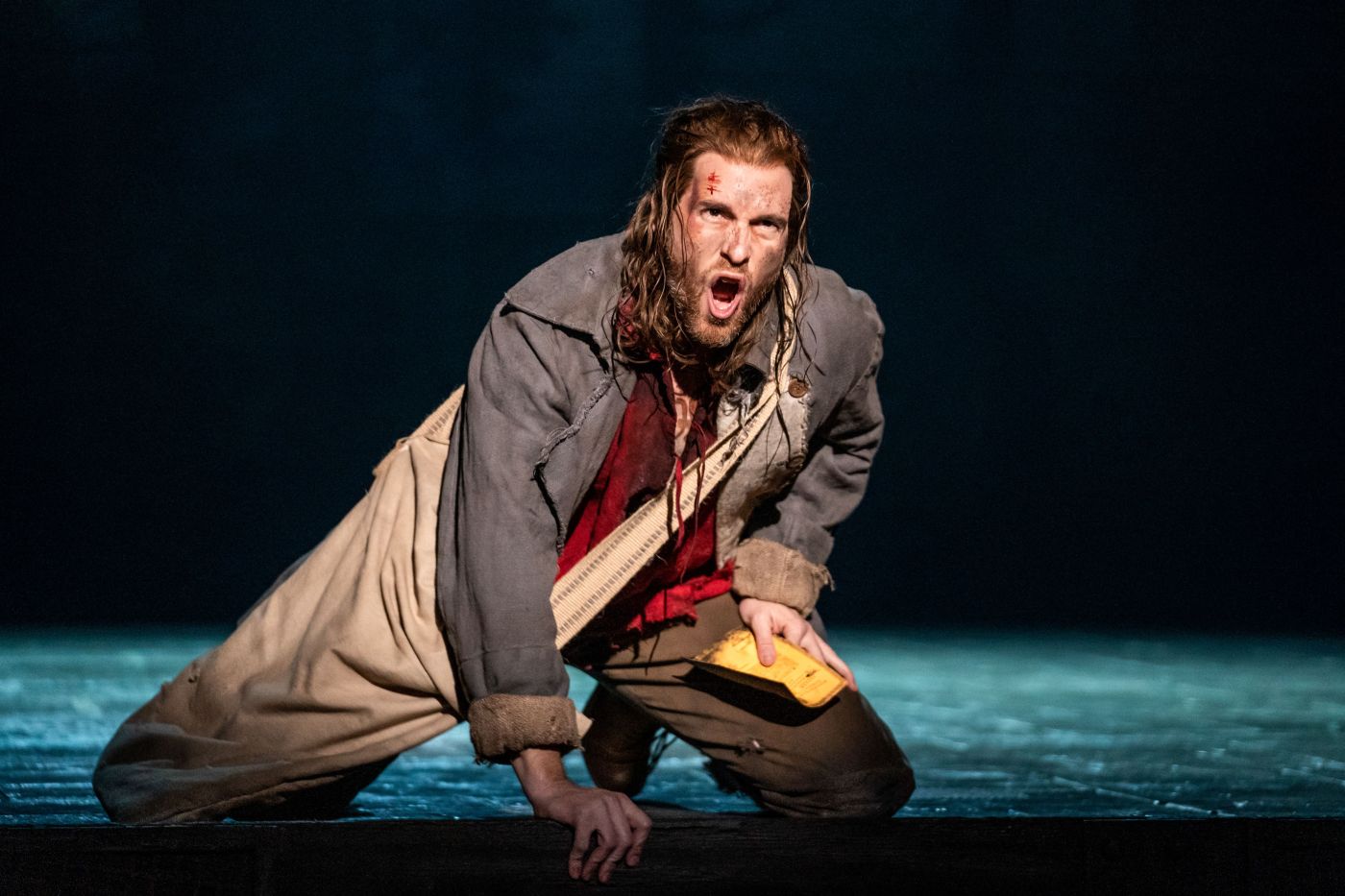
‘Les Mis’ goes big, brings it home
On the barricade, rebel students stand against a tyrannical French monarchy. Mixed among them are love-struck dreamers, heartbroken waifs, bawdy rogues and idealists, children and spies and fugitives. Overlapping plot lines crash the doomed and triumphant together, all of it driven forward by soaring melodies.
There is nothing like the booming and bombast of “Les Misérables.”
The last time “Les Misérables” came to Boston was days after Notre Dame burned. This time, the show arrives a week after the Paris Olympics — “Les Mis” runs now through Aug. 25 at the Citizens Opera House. Clearly, the show wants us to be aware of its deep connection to France. And while that shouldn’t be missed, this show is bigger than France. It’s bigger than anything.
Americans love big things. Broadway has learned to cater to that with offerings such as “The Lion King” and “Wicked” (and still “Les Mis” towers over the competition). But when the adaptation of Victor Hugo’s masterpiece arrived on Broadway in 1987, no musical had this kind of grand sweep — typically called an operetta, “Les Mis” is essentially an opera, a sung-through piece more Puccini than Rodgers and Hammerstein.
Often it’s mocked for this sweep. The cast is huge. The score often rises up like a mountain range. The sets and lights and fog (so much great fog!) carry the audience from 1800s French chain gangs to whore houses to the bridges and sewers and barricades of Paris on the brink of revolution. It has to have this largeness to frame the large ideas and emotions that provide the show’s humanity.
“Les Mis” follows convict-on-the-run Jean Valjean (the always awesome Nick Cartell) as he is pursued across decades by relentless police inspector Javert (Preston Truman Boyd). Through the chase Jean Valjean becomes mayor of a town, runs a factory, raises a dead prostitute’s daughter as his own, secretly saves the life of his daughter’s beloved, fights for a new France, and forces Javert to re-evaluate his entire life’s purpose.
Somehow, between this epic tale that spans half a century, moments of aching intimacy bloom. Cartell’s Jean Valjean and Haley Dortch’s Fantine, the prostitute, shine in “Come to Me,” their quiet, sad, and kind meeting when Jean Valjean pledges to find and save Fantine’s daughter. This was just one standout in a performance dotted with these precious spots of tenderness.
The big things America loves, the Dan Brown novels, Marvel movies, Michael Bay’s whole output, typically aren’t about much. And, yes, “Les Misérables” is massive. But it’s also about something, many things actually: passion, promises, loss, justice, the painful birth of democracy, the exploitation of the working class, how acts of kindness and mercy redeem a cruel world, and, of course, how “to love another person is to see the face of God.”
“Les Misérables” stands atop a barricade roaring with pathos and passion. But it also delivers wisdom in whispers and insights in its mighty shouts.
For tickets and details, visit boston.broadway.com


